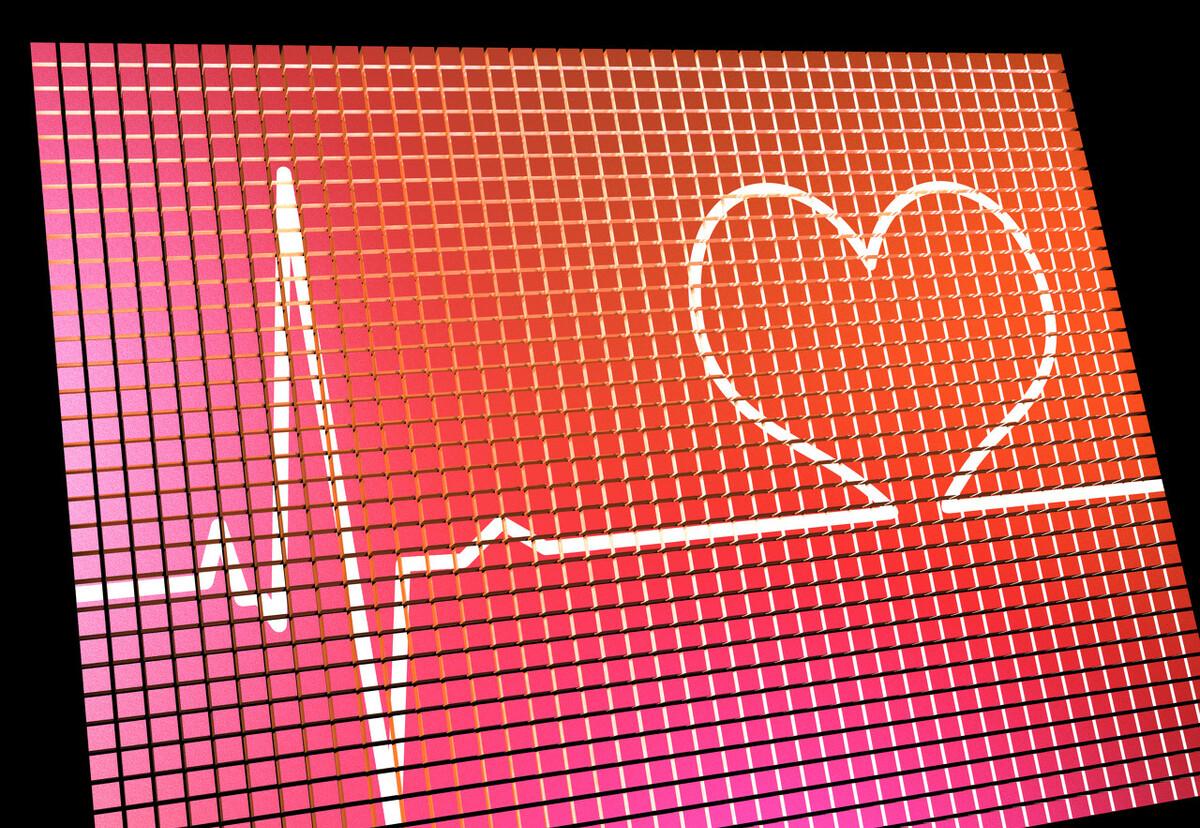For 24 hours a day, the heart beats non-stop, maintaining normal life. Adults beat 60 to 100 beats per minute at rest, but their heartbeat is affected by age, mood, movement, and gender. If the heart doesn't beat at its own pace, a heart beat too slowly or too fast can cause a range of health problems.

<h1 class="pgc-h-arrow-right" Data-track="2" What are the warning lines > heartbeat? </h1>
1. Undulating line
Premature beats and atrial fibrillation are common heartbeat disorders, with a high incidence of the former, such as poor heart function, lack of sleep, smoking and alcoholism, poor mood or mental stress, and easy premature beats when drinking caffeine-containing beverages. The main symptoms are palpitations, sudden heart stopping beating, chest as if something was on top of it, and so on. When diagnosed with premature beats, no special treatment is required as long as there are no abnormal symptoms and the number of attacks is small.
If frequent attacks are accompanied by obvious symptoms or organic heart disease, it will affect the heart's drainage function, and even cause serious arrhythmias or sudden death, which should be treated as soon as possible. The latter is more sinister and is common in high blood pressure, coronary heart disease, overwork, lack of sleep, and alcoholism.
The main symptoms are irregular heartbeat, chest tightness, shortness of breath and panic, and constant cold sweat. Atrial fibrillation has always been left unchecked to develop into stroke, so once diagnosed, you should actively cooperate with the doctor's treatment, quit smoking and alcohol, adjust your daily routine, monitor the heartbeat at any time and go to the hospital regularly for review.
2. Overspeed line
In an adult's quiet state, a heartbeat rate of more than 100 beats per minute is called tachycardia. Tachycardia not only induces physical discomfort, but also damages coronary arteries and even causes myocardial ischemia or acute myocardial infarction. Start by identifying the causes of tachycardia, such as strenuous exercise, smoking and alcohol abuse, drinking caffeinated beverages, being overly emotional, and being pregnant. In this case, no special treatment is required, and it can be relieved by eliminating the factors.
If the heartbeat exceeds 100 beats per minute, but less than 160, this is pathological beat of the heart, the main symptom is slow and rapid heartbeat, such patients generally do not have organic heart disease and have a good prognosis. If the heartbeat reaches 150 to 200 beats per minute, this is called paroxysmal supraventricular tachycardia, which may cause syncope at any time, and should be treated early and targeted.
3. Slow line
A heartbeat of less than 60 beats per minute is called bradycardia, and if accompanied by syncope, it is very likely to cause cardiac arrest or even sudden death. If the heart beats less than 60 times for professional athletes or people who have been doing heavy physical labor for a long time, do not worry too much; if the average person has a heartbeat of less than 50 beats per minute, they often feel general weakness, headache and dizziness, chest tightness and shortness of breath, transient blackness and precordial discomfort and early medical treatment.
Tips
When the heartbeat is unstable, in addition to actively cooperating with the doctor's treatment, it is also necessary to do a good job in life intervention. Maintain a regular schedule, refuse to stay up late, smoke and drink heavily, and drink less strong tea and strong coffee. In summer, you should not be too cool, such as air conditioning or fans blowing directly on the body, taking cold showers and drinking cold drinks. Maintain moderate exercise, such as brisk walking, tai chi or swimming, to improve cardiopulmonary function. Mental tension and great stress can make the heart beat abnormally, so you should maintain a positive and optimistic attitude, avoid excessive excitement and sadness, and vent your emotions by listening to music, confiding to others or meditating.
Family doctor online special article, unauthorized reproduction